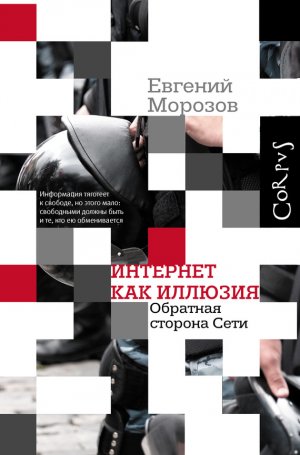Интернет как иллюзия. Обратная сторона сети Морозов Евгений

Читать бесплатно другие книги:
«Вода реки гладкая, тускло-серебристая, течение ее почти неуловимо, она как бы застыла, принакрытая ...
«В горном ущелье, над маленькой речкой – притоком Сунжи – выстроили рабочий барак, – низенький и дли...
Впервые напечатано в журнале «Современный мир», 1910, номер 9, сентябрь, под заглавием «Встреча», с ...
«Прочитав книжку „Уход Толстого“, сочинённую господином Чертковым, я подумал: вероятно, найдётся чел...
«…Тогда же, судьба, – в целях воспитания моего, – заставила меня пережить трагикомические волнения п...
«Она – маленькая, мягкая, тихая, на ее лице, сильно измятом старостью, светло и ласково улыбаются са...






